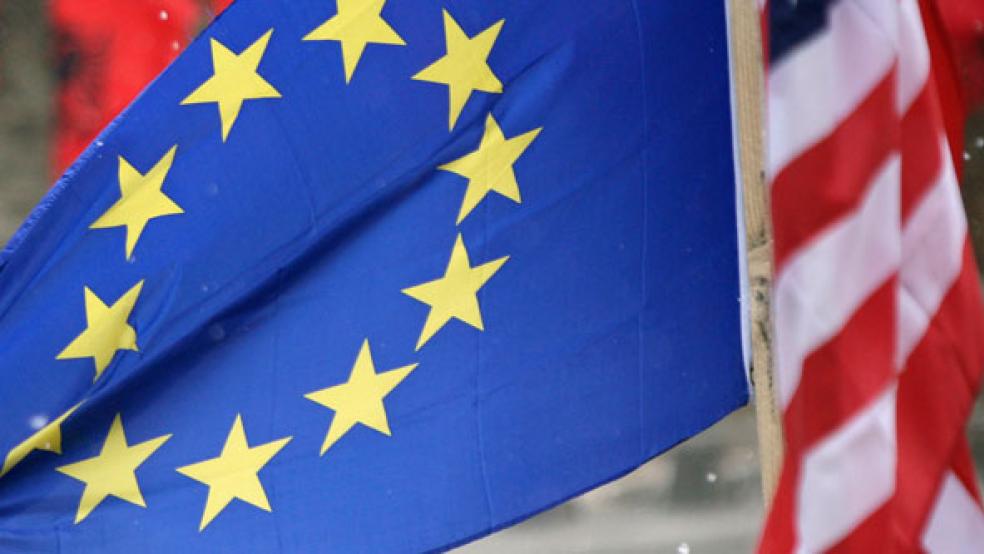Europe's leaders will agree on Friday to push for a free-trade pact with the United States, according to a draft joint statement, putting the onus on the White House to respond to a proposal that would encompass half the world's economic output.

Major exporters Germany and Britain appear to have won support from the rest of the European Union at a summit in Brussels to reach a deal with Washington that many leaders hope will help Europe pull out of its banking and debt crises. According to the draft of the final summit statement obtained by Reuters, the European Union will give "its support for a comprehensive trade agreement" with the United States.
"All efforts should be devoted to pursuing agreements with key partners," EU leaders will say, putting the United States at the top of a long list including Japan and Canada.
The EU leaders' statement raises expectations that U.S. President Barack Obama may endorse the initiative next Tuesday in his annual State of the Union speech, which presidents traditionally use to lay out their priorities for the year. Obama and EU leaders tasked their trade chiefs in 2011 to look at whether it was feasible to agree a deal to further integrate the two blocs that already have low tariffs.
A U.S.-EU draft proposal drawn up by EU Trade Commissioner Karel De Gucht and U.S. Trade Representative Ron Kirk is essentially ready. De Gucht, who went to Washington this week, has given strong signals that there is enough common ground to go ahead with negotiations.
Talks could start in months, and while such negotiations are notoriously slow, both sides appear to want to agree on an accord quickly, possibly by the end of 2014. But U.S. officials, wary of getting bogged down in endless talks, have said they need a strong political commitment from the 27-nation European Union that Brussels is serious about opening up its markets before they can go ahead with talks.
The EU's formal commitment will come later on Friday when the summit, largely focused on efforts to agree the EU's seven-year budget, wraps up with a final statement. German Chancellor Angela Merkel, with support from free-trade advocate Britain, has been eager for a deal for months.
"I wish for nothing more than a free-trade agreement with the United States," Merkel said on January 29 in Berlin.
Diplomats say the time is right for a deal that was first talked about three decades ago but was considered too difficult because of worries from protectionists on both sides of the Atlantic, especially the farming sector. In a speech on Saturday in Munich, U.S. Vice President Joe Biden said the economic benefits of a comprehensive trade agreement would be "almost boundless" if the two sides could muster the political will to resolve longstanding differences in regulations that have blocked farm and other exports.
Biden said: "This is within our reach."
Additional reporting by Doug Palmer in Washington

